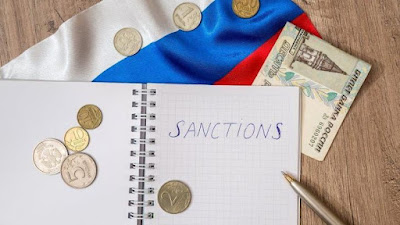Filenews 27 March 2022 - by Theano Thiopoulou
A temporary crisis framework, valid until 31 December 2022, was approved by the European Commission on Thursday so that member states can make use of the flexibility provided for in state aid rules to support the economy as part of measures to address the consequences of Russia's invasion of Ukraine.
The Commission informed that the new framework will allow Member States to grant limited amounts of aid to companies affected by the current crisis or by the related sanctions and countermeasures, to ensure that there is still sufficient liquidity for the companies, to compensate the companies for the additional costs incurred by them due to the extremely high gas and electricity prices. These types of aid measures will also be available for companies identified as in difficulty, as they may be facing severe liquidity needs due to the current circumstances following the coronavirus outbreak. Russian-controlled entities subject to sanctions will be excluded from the scope of the measures.
For example, as the Commission says, if Member States wish to minimise the impact of the sharp increase in factor costs, they can immediately introduce allocation schemes of up to €400,000 per company affected by the crisis. The Commission stands ready to work immediately with Member States to immediately find feasible solutions to safeguard this important part of the economy, building on the full flexibility provided by State aid rules.
In order to remedy the disturbance, the Temporary Crisis Framework provides for three types of aid:
- Limited amounts of aid: States will have the possibility to establish mechanisms for granting up to €35,000 to crisis-affected businesses operating in the agriculture, fisheries and aquaculture sectors and up to €400,000 per crisis-hit enterprise in all other sectors.
- Liquidity support in the form of state guarantees and subsidised loans: Member States will be able to provide subsidised state guarantees to ensure that banks continue to provide loans to all companies affected by the current crisis, public and private loans at subsidised interest rates.
- Aid to compensate for high energy prices: This support can be granted in any form whatsoever, including direct grants. The total aid per beneficiary may not exceed 30% of the eligible costs, up to a maximum of EUR 2 million. euro at a given point in time.
The Temporary Framework, according to the Commission, includes a number of safeguards:
Proportional methodology: There should be a link between the amount of aid that can be granted to undertakings and the scale of their economic activity and the exposure to the economic impact of the crisis, taking into account their turnover and energy costs.
Eligibility conditions: These are companies for which the purchase of energy products corresponds to at least 3% of their production value.
Sustainability requirements: Member States are invited to consider, on a non-discriminatory basis, the introduction of environmental protection or security of supply requirements when granting aid for additional costs due to the exceptionally high gas and electricity prices. Therefore, the aid should help businesses to cope with the current crisis, while laying the foundations for a sustainable recovery
